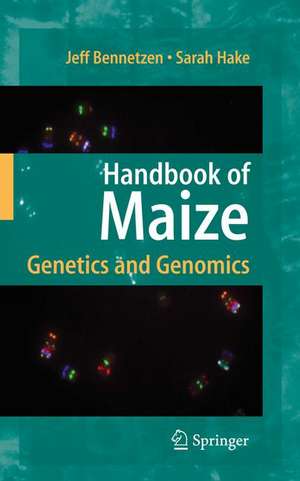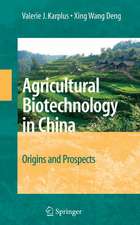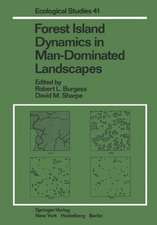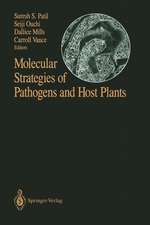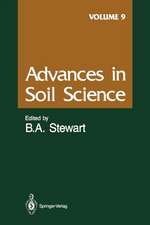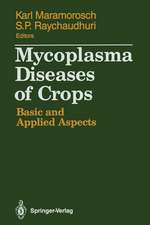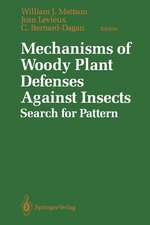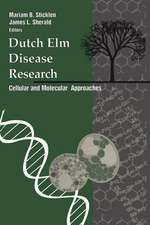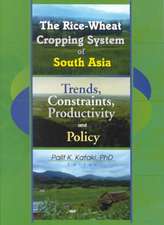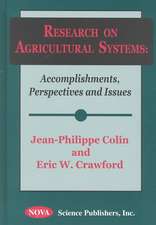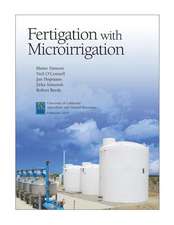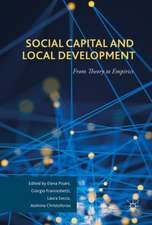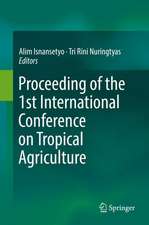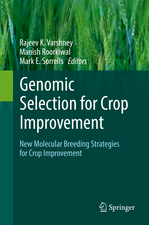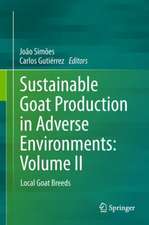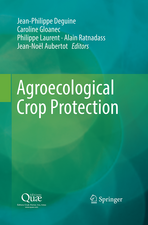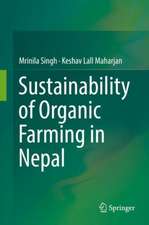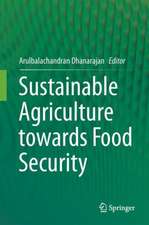Handbook of Maize: Genetics and Genomics
Editat de Jeff L. Bennetzen, Sarah C. Hakeen Limba Engleză Hardback – 14 ian 2009
Among plant science researchers, maize has the second largest and most productive research community, trailing only the Arabidopsis community in scale and significance. At the applied research and commercial improvement levels, maize has no peers in agriculture, and consists of thousands of contributors worthwhile. A comprehensive book on the biology of maize has not been published.
The "Handbook of Maize: the Genetics and Genomics" center on the past, present and future of maize as a model for plant science research and crop improvement. The books include brief, focused chapters from the foremost maize experts and feature a succinct collection of informative images representing the maize germplasm collection.
| Toate formatele și edițiile | Preț | Express |
|---|---|---|
| Paperback (2) | 1060.87 lei 38-44 zile | |
| Springer – 22 noi 2010 | 1060.87 lei 38-44 zile | |
| Springer – 5 dec 2010 | 1241.10 lei 43-57 zile | |
| Hardback (2) | 1098.80 lei 38-44 zile | |
| Springer – 14 ian 2009 | 1098.80 lei 38-44 zile | |
| Springer – 11 dec 2008 | 1240.93 lei 43-57 zile |
Preț: 1098.80 lei
Preț vechi: 1445.80 lei
-24% Nou
Puncte Express: 1648
Preț estimativ în valută:
210.26€ • 220.08$ • 174.100£
210.26€ • 220.08$ • 174.100£
Carte tipărită la comandă
Livrare economică 26 martie-01 aprilie
Preluare comenzi: 021 569.72.76
Specificații
ISBN-13: 9780387778624
ISBN-10: 0387778624
Pagini: 800
Ilustrații: XII, 800 p. 94 illus., 46 illus. in color.
Dimensiuni: 155 x 235 x 33 mm
Greutate: 1.47 kg
Ediția:2009
Editura: Springer
Colecția Springer
Locul publicării:New York, NY, United States
ISBN-10: 0387778624
Pagini: 800
Ilustrații: XII, 800 p. 94 illus., 46 illus. in color.
Dimensiuni: 155 x 235 x 33 mm
Greutate: 1.47 kg
Ediția:2009
Editura: Springer
Colecția Springer
Locul publicării:New York, NY, United States
Public țintă
ResearchCuprins
Maize and the Origins of Plant Genetics.- East, Emerson, and the Birth of Maize Genetics.- Barbara McClintock.- The Birth of Maize Molecular Genetics.- Mutagenesis – the Key to Genetic Analysis.- Maize Improvement.- Development of Hybrid Corn and the Seed Corn Industry.- Maize and the Biotech Industry.- Modern Maize Breeding.- The Maize Genome.- Cytogenetics and Chromosomal Structural Diversity.- Maize Genome Structure and Evolution.- Genetic Diversity, Linkage Disequilibrium and Association Mapping.- The Polyploid Origin of Maize.- Maize Centromeres and Knobs (neocentromeres).- Transposons Ac/Ds, En/Spmand their Relatives in Maize.- Mutator and MULE transposons.- The LTR-Retrotransposons of Maize.- Helitrons: Their Impact on Maize Genome Evolution and Diversity.- Maize GEvo: A Comparative DNA Sequence Alignment Visualization and Research Tool.- Meiotic Genes and Meiosis in Maize.- Homologous Recombination in Maize.- Paramutation: Heritable in TransEffects.- Imprinting in Maize.- Chromatin, DNA Methylation, RNAi and Epigenetic Regulation.- The B Chromosome of Maize.- Mitochondria and Chloroplasts.- Maize Genetic and Genomic Technologies.- Genetic Mapping and Maps.- Genetic Analyses with Oat-Maize Addition and Radiation Hybrid Lines.- Maize Chromosome Tools: Quantitative Changes in Chromatin.- Transposon Resources for Forward and Reverse Genetics in Maize.- TILLING and Point Mutation Detection.- Gene Expression Analysis.- Maize Transformation.- Doubled Haploids.- Databases and Data Mining.- Sequencing Genes and Gene Islands by Gene Enrichment.- Genes and Gene Families.- Maize Transcription Factors.- The Genetics and Biochemistry of Maize Zein Storage Proteins.- The Cytochrome P450 Superfamily of Monooxygenases.- Cell wall Biosynthetic Genes of Maize and their Potentialfor Bioenergy Production.- Future Prospects.- The Future of Maize.
Recenzii
From the reviews:
“The book subsumes the current collective knowledge in the research fields of maize genetics and genomics … . The book is of high quality regarding both text and figures. … The book is delightful to read, mainly due to the clear structure with plenty of scientific detail. The careful selection of literature references for each chapter makes the volume very effective and a must-read for specialists and novices in addition to maize researchers and breeders as well.” (Ralf G. Kynast, Annals of Botany, Vol. 109 (7), June, 2012)
“The book subsumes the current collective knowledge in the research fields of maize genetics and genomics … . The book is of high quality regarding both text and figures. … The book is delightful to read, mainly due to the clear structure with plenty of scientific detail. The careful selection of literature references for each chapter makes the volume very effective and a must-read for specialists and novices in addition to maize researchers and breeders as well.” (Ralf G. Kynast, Annals of Botany, Vol. 109 (7), June, 2012)
Textul de pe ultima copertă
Handbook of Maize
Edited by Jeff Bennetzen and Sarah Hake
Maize is one of the world’s highest value crops, with a multibillion dollar annual contribution to agriculture. The great adaptability and high yield of maize as a food, feed and forage crop have led to its production on a massive scale, with acreage expanding at the expense of other crops. Maize has developed in its non-food usage, comprising a major source of ethanol for fuel in the United States. In addition, maize has occupied center stage in the transgenic plant controversy, serving as one of the first food crops with commercialized transgenic varieties. The release of the genome sequence of maize in 2008 will indicate the structure and gene content of the first average-size plant genome and will be the most complex genome sequenced from any organism to date.
Beyond its major agricultural and economic contributions, maize has been a model species for genetics since it was the first plant to have a genetic map, initially published by Emerson and colleagues in 1935. Such central genetic phenomena as transposable elements, nucleolar organizers, telomeres and epigenetic gene regulation were discovered first in maize, and later found to be universal eukaryotic genome properties. These key genetic contributions continue, including taking the lead in the characterization of the evolution of the highly unstable genomes so common in flowering plants.
Among plant science researchers, maize has the second largest research community, trailing only the Arabidopsis community. Despite the size and scope of this community, a comprehensive book on the biology of maize – targeting genetics, genomics or overall biology - has not been published. Hence, a modern and comprehensive volume on the status (and future) of maize as a species for biological study is highly warranted.
Handbook of Maize: Genetics and Genomics centers on the past, present and future of maize asa model for plant genetics and crop improvement. The book includes chapters from the foremost maize experts on the role of maize in the origin of plant genetics, in modern crop improvement and in the study of genome structure, function and evolution.
Jeff Bennetzen, Ph.D. is the Norman and Doris Giles Professor of Molecular Biology and Functional Genomics at the University of Georgia, and is also a Georgia Research Alliance Eminent Scholar. He has studied the structure and evolution of the maize genome for the last 28 years.
Sarah Hake, Ph.D. is the Director of the Plant Gene Expression Center of the United States Department of Agriculture – Agricultural Research Service and University of California, Berkeley. She is also an adjunct Professor in the Department of Plant and Microbial Biology at U. C. Berkeley. She has worked on maize throughout her scientific career.
Edited by Jeff Bennetzen and Sarah Hake
Maize is one of the world’s highest value crops, with a multibillion dollar annual contribution to agriculture. The great adaptability and high yield of maize as a food, feed and forage crop have led to its production on a massive scale, with acreage expanding at the expense of other crops. Maize has developed in its non-food usage, comprising a major source of ethanol for fuel in the United States. In addition, maize has occupied center stage in the transgenic plant controversy, serving as one of the first food crops with commercialized transgenic varieties. The release of the genome sequence of maize in 2008 will indicate the structure and gene content of the first average-size plant genome and will be the most complex genome sequenced from any organism to date.
Beyond its major agricultural and economic contributions, maize has been a model species for genetics since it was the first plant to have a genetic map, initially published by Emerson and colleagues in 1935. Such central genetic phenomena as transposable elements, nucleolar organizers, telomeres and epigenetic gene regulation were discovered first in maize, and later found to be universal eukaryotic genome properties. These key genetic contributions continue, including taking the lead in the characterization of the evolution of the highly unstable genomes so common in flowering plants.
Among plant science researchers, maize has the second largest research community, trailing only the Arabidopsis community. Despite the size and scope of this community, a comprehensive book on the biology of maize – targeting genetics, genomics or overall biology - has not been published. Hence, a modern and comprehensive volume on the status (and future) of maize as a species for biological study is highly warranted.
Handbook of Maize: Genetics and Genomics centers on the past, present and future of maize asa model for plant genetics and crop improvement. The book includes chapters from the foremost maize experts on the role of maize in the origin of plant genetics, in modern crop improvement and in the study of genome structure, function and evolution.
Jeff Bennetzen, Ph.D. is the Norman and Doris Giles Professor of Molecular Biology and Functional Genomics at the University of Georgia, and is also a Georgia Research Alliance Eminent Scholar. He has studied the structure and evolution of the maize genome for the last 28 years.
Sarah Hake, Ph.D. is the Director of the Plant Gene Expression Center of the United States Department of Agriculture – Agricultural Research Service and University of California, Berkeley. She is also an adjunct Professor in the Department of Plant and Microbial Biology at U. C. Berkeley. She has worked on maize throughout her scientific career.
Caracteristici
A modern and comprehensive volume on the status and future of maize as a species for genetic and genomic study as well as a model system Comprised of brief, focused chapters from the foremost maize experts Includes supplementary material: sn.pub/extras
Notă biografică
Jeff Bennetzen, Ph.D. is the Norman and Doris Giles Professor of Molecular Biology and Functional Genomics at the University of Georgia, and is also a Georgia Research Alliance Eminent Scholar. He has studied the structure and evolution of the maize genome for the last 28 years.
Sarah Hake, Ph.D. is the Center Director of the Plant Gene Expression Center of the United States Department of Agriculture – Agricultural Research Service and University of California, Berkeley. She is also an adjunct Professor in the Department of Plant and Microbial Biology at U. C. Berkeley. She has worked on maize throughout her scientific career.
Sarah Hake, Ph.D. is the Center Director of the Plant Gene Expression Center of the United States Department of Agriculture – Agricultural Research Service and University of California, Berkeley. She is also an adjunct Professor in the Department of Plant and Microbial Biology at U. C. Berkeley. She has worked on maize throughout her scientific career.
